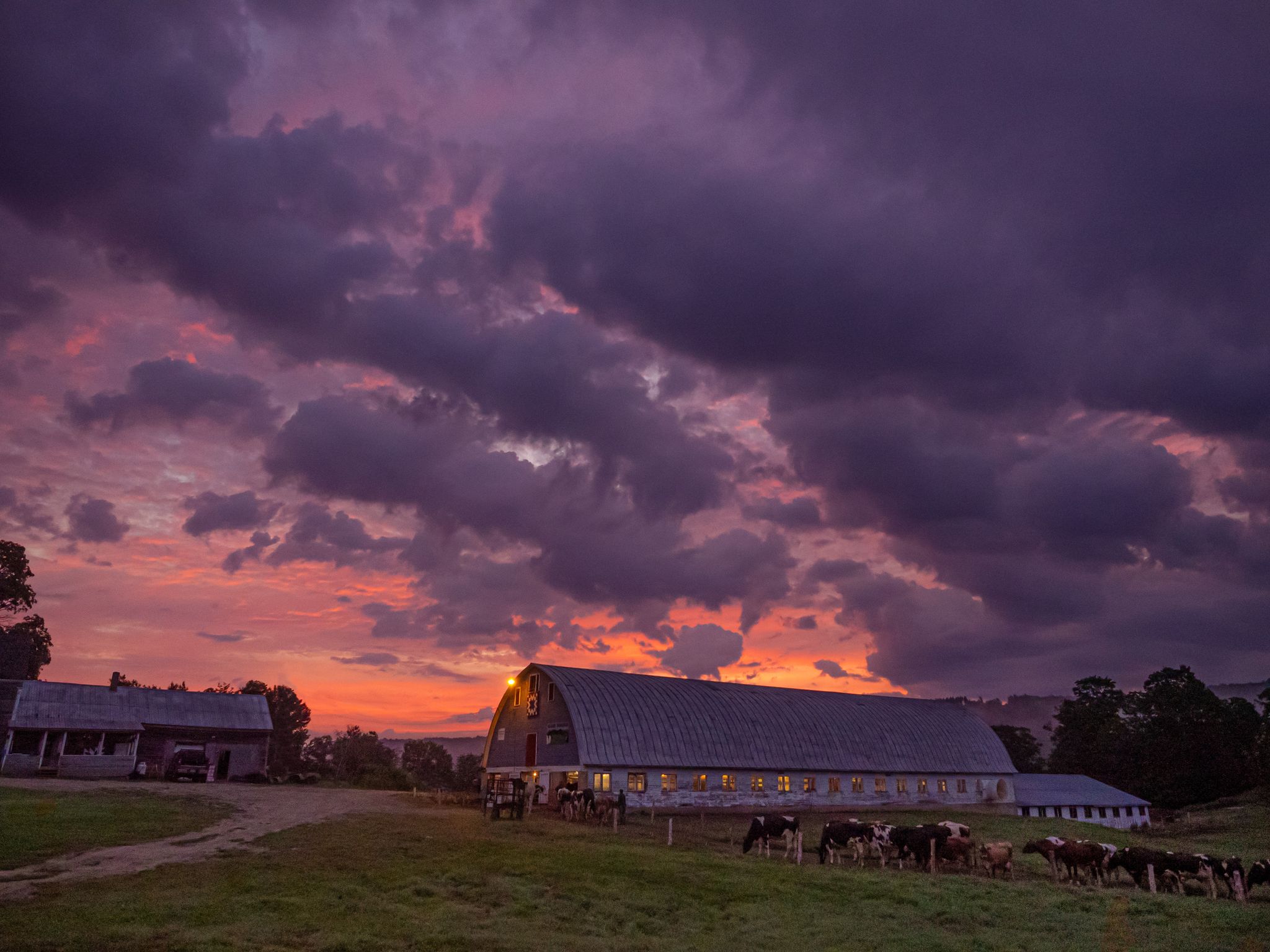
May 9, 2022 | Montpelier, VT – The Working Lands program continues to increase its historic funding for those who make their living off the land. This May, the Program awarded $3.1 million in grants that will help grow agriculture and small businesses in Vermont with new Supply Chain and Market Level Impact specific grants to leverage supply chain partnerships at a significant scale of up to $250K per award. This round of funding, coupled with the $2.1 million in grants awarded this January reaches all segments of Vermont working lands sectors, addressing meat slaughter and processing bottlenecks, supply chain resiliency, marketing plans and overall business development.
“As we continue our recovery and revitalization work, the WLEB’s funding prioritization provides critical support to emerging needs within markets and communities of Vermont’s working landscape” said Governor Phil Scott.
Awards from this program also support farmers, producers, markets, and co-ops that make up our food system; Vermont loggers, foresters and forest products businesses managing our natural resources; and service provider organizations that help strengthen our supply chain. Under the leadership of Governor Phil Scott and the legislature a total of $5.294 million was allocated to the Working Lands Program this year.
“The Working Lands Enterprise Board continues to scale investments to a diverse range of agriculture and forestry businesses, to increase output, create jobs and propel innovation for industries imperative to Vermont’s economic success,” said Agency of Agriculture Food and Markets Deputy Secretary Alyson Eastman. This initiative supports Vermont entrepreneurs by providing capital assistance to help grow their business, building infrastructure and promoting growth in economies across all 14 counties.
In May, the WLEB awarded working lands businesses in the following categories Working Lands Enterprise Program awards: (Please follow the link in each category to view the individual businesses receiving 2022 program funds.)
- Supply Chain Impact - $654,800 awarded
Grants include funding to assist with developing or expanding supply chain partnerships to positively impact multiple businesses within its own supply chain. These infrastructure improvements will support increased production, processing, and/or distribution to reach new or larger markets, research, and development of new products and/or sales avenues for multiple enterprises, (e.g., e-commerce, home delivery, curb, blockchain technologies).
- Market Level Infrastructure Impact – $2,526,860 awarded
Grants will allow businesses to enhance production and processing for value-added agriculture and/or manufacturing efficiencies; transitioning to operation as a new processor or expansion as an existing processor; adding automation to eliminate bottlenecks and addressing known logistics challenges along the supply chain. Grants for forest-based products focused on producing, screening, weighing, and/or packaging wood fuel products (firewood, pellets, or chips) for heating; kiln or flow-through dryers and increasing commercial sawmill throughput or efficiency.
The Working Lands Enterprise Initiative (WLEI) and governing board (WLEB) were created by the legislature in 2012 to stimulate economic development in the agricultural and forestry sectors. WLEI is a collaborative effort between the Vermont Agency of Agriculture, Food, and Markets, the Vermont Department of Forest, Parks, and Recreation, and the Vermont Agency of Commerce and Community Development. Please visit https://workinglands.vermont.gov/ for a complete list of awarded businesses.
For questions please contact:
Lynn Ellen Schimoler | Working Lands Enterprise Initiative
LynnEllenSchimoler@vermont.gov | 802-622-4477
The mission of the Working Lands Enterprise Initiative is to grow the economies, cultures, and communities of Vermont's working landscape. The Working Lands Enterprise Board (WLEB) achieves this by making essential, catalytic investments in critical leverage points of the Vermont farm and forest economy and facilitating policy development to optimize the agricultural and forest use of Vermont lands.
